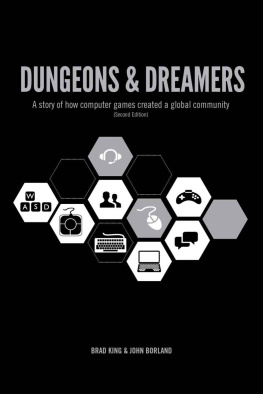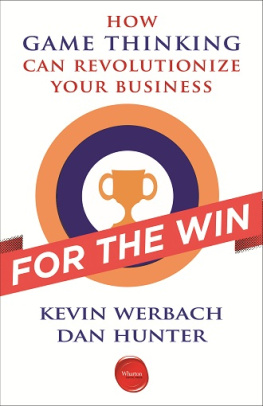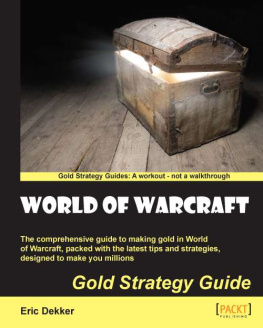The Warcraft Civilization
The Warcraft Civilization
Social Science in a Virtual World
William Sims Bainbridge
The MIT Press
Cambridge, Massachusetts
London, England
2010 Massachusetts Institute of Technology
All rights reserved. No part of this book may be reproduced in any form by any electronic or mechanical means (including photocopying, recording, or information storage and retrieval) without permission in writing from the publisher.
MIT Press books may be purchased at special quantity discounts for business or sales promotional use. For information, please e-mail or write to Special Sales Department, The MIT Press, 55 Hayward Street, Cambridge, MA 02142.
World of Warcraft and Blizzard Entertainment are trademarks or registered trademarks of Blizzard Entertainment, Inc. in the U.S. and/or other countries. The opinions expressed by the authors and those providing comments are their alone, and do not necessarily reflect the opinions of Blizzard Entertainment, Inc. Images printed with permission.
This book was set in Stone Sans and Stone Serif by Toppan Best-set Premedia Limited.
Printed and bound in the United States of America.
Library of Congress Cataloging-in-Publication Data
Bainbridge, William Sims.
The warcraft civilization : social science in a virtual world / William
Sims Bainbridge.
p. cm.
Includes bibliographical references and index.
ISBN 978-0-262-01370-3 (hardcover : alk. paper)
ISBN 978-0-262-28837-8 (retail e-book)
1. Computer gamesSocial aspects. 2. World of Warcraft. 3. Shared virtual environments. 4. Virtual realitySocial aspects. 5. Online identitiesSocial aspects. I. Title.
GV1469.27.B32 2010
794.8dc22
2009021236
10 9 8 7 6 5 4 3 2 1
1 Entrance
I am Incognita, one of the Undead. I entered World of Warcraft, also called Azeroth, in the Shadow Grave crypt, deep beneath the ground near Deathknell. I understood that the time was midnight on the sixth of March 2007, but I knew little of my previous existence. Unlike a newborn child, I could talk, reason, read, and take complex actions, although there was much I needed to learn. I had some knowledge but few memories. My skills were terribly underdeveloped. It is said that Humans wonder what will happen after they die, but we Undead wonder what happened before we died.
The first thing I saw was the trash-strewn floor of the crypt, lifeless gray like the walls. Then the flickering light revealed two tiers of niches where disordered bones indicated that Human bodies had once lain. Each niche was decorated by a grim, carved skull, shaped from the same gray stone as everything else within my field of view. In one niche, a stout, oddly shaped candle kept vigil over a mound of dirt hinting at the flesh that once covered the bones. A torch on the wall behind me mirrored another across the shallow pit, lighting a stone staircase. I ascended, turned left at the landing where more carven skulls supported shallow arches, and ascended again past cobwebs and the dust of ages. The third flight of stairs brought me to the surface of my new world. Gross stone columns, with the same skull motif, framed the exit from the crypt into a desolate graveyard.
Waiting for me was the undertaker, who spoke: About time you woke up. We were ready to toss you into the fire with the others, but it looks like you made it. I am Mordo, the caretaker of the crypt of Deathknell. And you are the Lich Kings slave no more. Somehow I found myself thinking like an anthropologist, or perhaps a linguist. Mordo, I hypothesized, came from the Latin word for dead, mors in the nominative or mortis in the genitive, related to morbidus meaning deceased. I looked at his bared teeth and wondered if the word mordere, meaning to bite, was a better derivation. Death bites, does it not? The German word for murder is Mord. Who was this Lich King, of whom Mordo spoke? A lich-gate is the place in a churchyard where the corpse waits for burial, and litchfield is an old word for cemetery. Perhaps the Lich King was the king of corpses, cognate with the German word for corpse, Leiche, Norwegian lik, and Dutch lijk.
Mordo told me to speak with Shadow Priest Sarvis, who could be found at the bottom of the hill, in a decayed chapel. When I entered the building, I saw no religious symbols, and the boarded windows admitted no daylight. Sarvis said to me, No other race on Azeroth has suffered as much as our people, priest. To laugh in the face of death has become second nature for all of us. Then I realized that I, like Sarvis, was a member of the priestly class, although an untrained one. I noticed he was wearing red and lavender robes and holding in his right hand a staff topped with a symbol at the top vaguely reminiscent of a cross, but with four rods forming a diamond shape around a red gem. As I was admiring his finery, Sarvis explained that our new leader was Lady Sylvanas, who had liberated us from the Lich King. The Dark Lady guides us in our war against the hated Scourge and the holdouts of humanity who dog our every step.
I then received my first combat task, exterminating the Mindless Ones, eight one-armed Wretched Zombies and eight Mindless Zombies, whose brains had been pierced by arrows. This was a sad task, because they were Undead like me, but lacking full consciousness. When I returned to the blasted chapel to report my success, Sarvis gave me a Hallowed Scroll written by Dark Cleric Duesten, the local priest trainer, telling me, feel blessed that your spirit was not released to the Nether, and suggesting I learn to deal with the fact that the people you once knew, perhaps even cared for, are no longer! When I presented it to Duesten, he commented, The Holy Light no longer concerns you, the spirits of your forefathers are fairy tales, and creatures from the Nether dont want you There is only one thing you must know: we have survived through will alone. It is faith in ourselves that separates us from others, and with our powers, we will cause great change in all of Azeroth.
More grim tasks were given to me: collecting magically useful organs from animals such as bats and wolves, and exterminating more of my brothers and sisters who had failed to make the complete return to consciousness after death. I looted valuable items, which I exchanged for money, and I began to gird myself with worn pieces of armor taken from those I killed. I learned with mixed pleasure and revulsion that we Undead can gain sustenance by eating the corpses of those we slew. As I interacted with the other Undead in the ruined village, they gave me advice: Embrace the shadows. Trust no one. Beware the living. Novice Elreth bestowed a blessing, Dark Lady watch over you! Executor Arren asked the chilling question, What would you ask of Death? (See figure 1.1.)
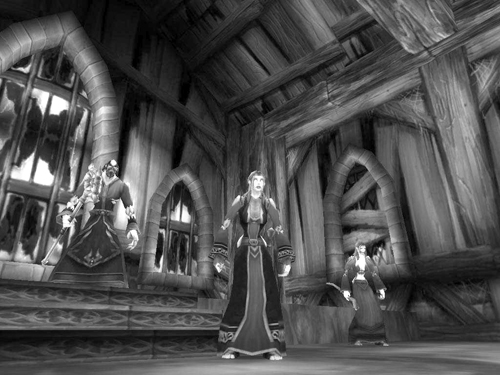
Figure 1.1
Incognita, an Undead priest, at the church in Deathknell, between Shadow Priest Sarvis and Novice Elreth.
The nature of my opponents changed fundamentally when Executor Arren assigned me the mission of killing twelve converts and initiates of the Scarlet Crusade. These were healthy, young Humans who, unlike me, had never died. They stood straight, whereas I hunched over, and they seemed filled with health. Given these contrasts, it was easy to hate them. Then I intercepted a map carried by the Red Messenger, showing where they had infiltrated our territory with agents. Arren ordered me to leave Deathknell and take the map swiftly to Executor Zygand, in Brill, our main Tirisfal settlement. Here I learned more about the huge conflict in which we Undead found ourselves, hunted as traitors by the forces of the Lich King, and invaded by Humans, who resented that we had seized Tirisfal from them just a few years before.

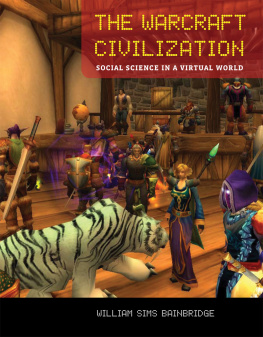
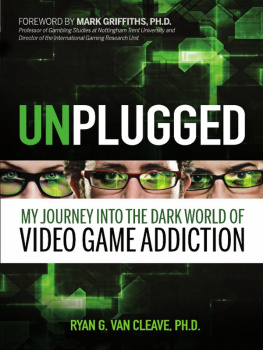
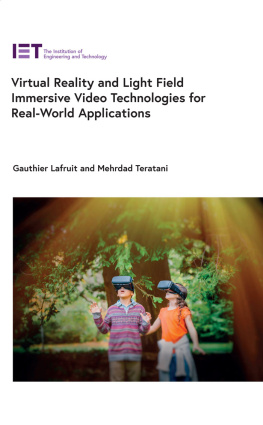

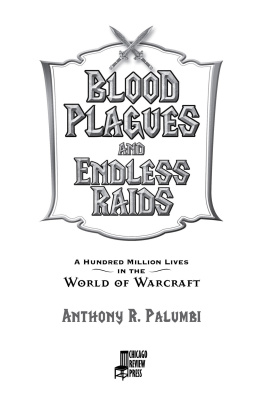
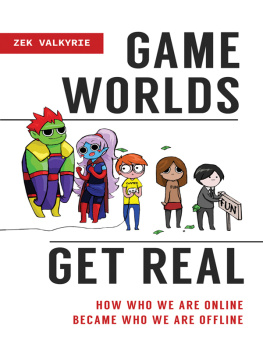
![Paul Emmerich [Paul Emmerich] - Beginning Lua with World of Warcraft Addons](/uploads/posts/book/124115/thumbs/paul-emmerich-paul-emmerich-beginning-lua-with.jpg)
